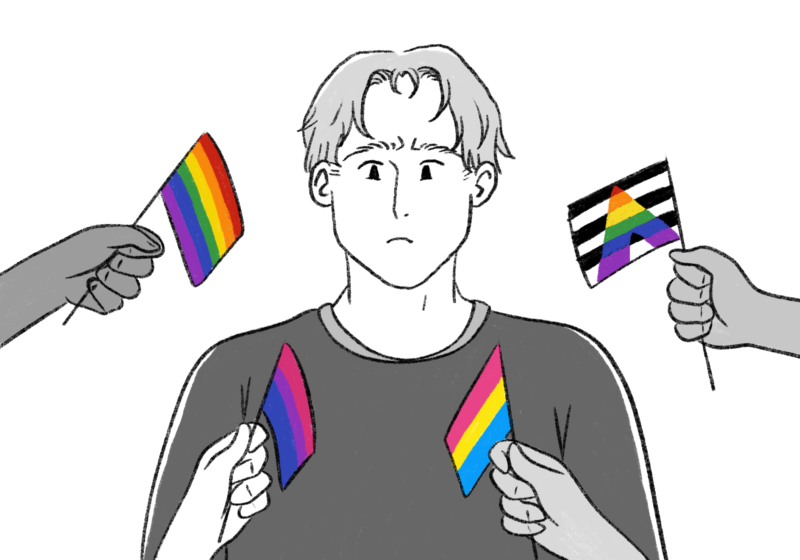“back for a minute. i’m bi. congrats for forcing an 18 year old to out himself. i think some of you missed the point of the show. bye”
It’s not often that I get sucker-punched by Twitter dot com, but this one hit like a sack of bricks. If you don’t know the context of this quote, it’s taken directly from Kit Connor (actor in the Netflix adaptation of the comic “Heartstopper”). In the show, Connor plays sweet little British boy Nick Nelson, who grapples with his sexuality as he develops feelings for the other main character, classic only-gay-kid-in-class Charlie Spring. Connor initially auditioned for the role of Charlie, but ended up as Nick instead — the implications of which now feel weird to think about.
Throughout show-Heartstopper’s skyrocketing popularity, Connor evaded questions about his sexuality. In one particular interview with Hunger Magazine, Connor noted a discomfort in making his sexuality actively public, despite the Twitter buzz about it. “I don’t feel like I have to tell the world about my sexuality,” Connor said. “I completely understand that many fans want queer representation to be authentic and they want to know whether it is authentic, but at the same time you shouldn’t make someone feel uncomfortable to the point where they have to tell a stranger about their sexuality.”
So, how did we end up here?
While it is completely understandable why people are concerned about queerbaiting — given that queer roles are often given to non-queer actors, seemingly without consideration — that doesn’t make it right for fans to investigate actors who aren’t “out” on their sexualities. Obviously, you give up a certain amount of personal freedom as a celebrity, but what’s happened to Connor has gone too far. Why does it matter, truly, if the actor for a gay-centric show is openly gay or not? What does knowing the minutiae of his sexuality add to your viewing experience?
As someone similarly reluctant to share or even explore labels, I would rather die than have people talk about who I might be salivating over behind my back. In fact, I write this piece feeling as if I’ve gone through a similar trajectory to Connor — I wrote a piece in my past talking about my unwillingness to ascribe a label to my sexuality or gender identity. Since then, I’ve shifted, and I still grapple with the choices I’ve made whenever I’m in a social situation where I feel someone struggling to find what pronouns to use for me, or make a joke and then look at me, waiting for the right reaction. It makes me want to throw up, it makes me feel like shriveling up into nothingness, and it makes me wish I never made a public-facing decision at all. However, unlike Connor, I was never lambasted for my choice to stay silent. I, unlike Connor, am not a celebrity, and thus my life is treated with a level of care by those surrounding me that public-facing figures seem to lose. If Kit Connor was sitting at your dinner table on Thanksgiving, I have to hope that none of us would use his sexuality as a talking point.
My last couple pieces have talked about the issues with celebrities: how we label them with certain attributes that make it hard to reconcile their humanity; how we deal with changes to their characters that don’t feel quite like what we imagined. This is the dark side. If we don’t keep in mind that celebrities are human, we might continue to forcibly out teenagers on the Internet — and much, much worse.



